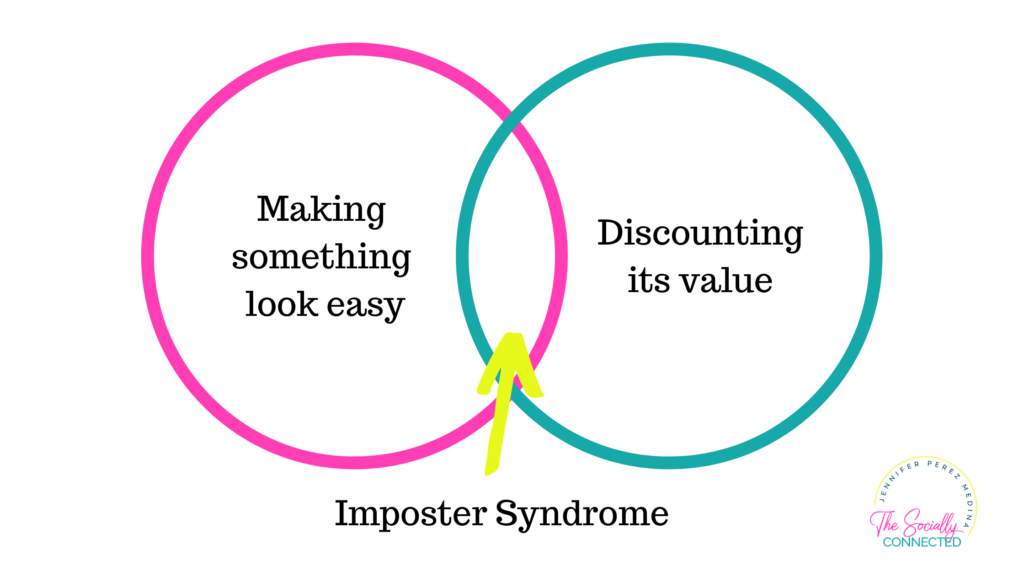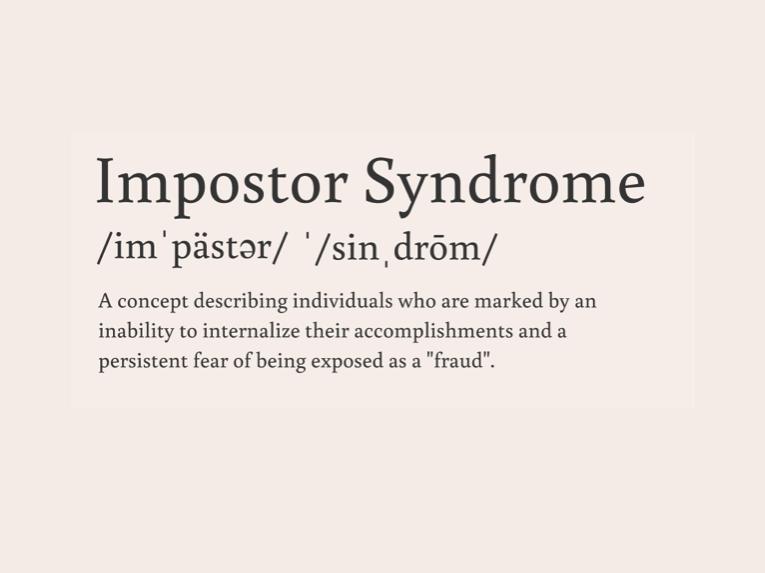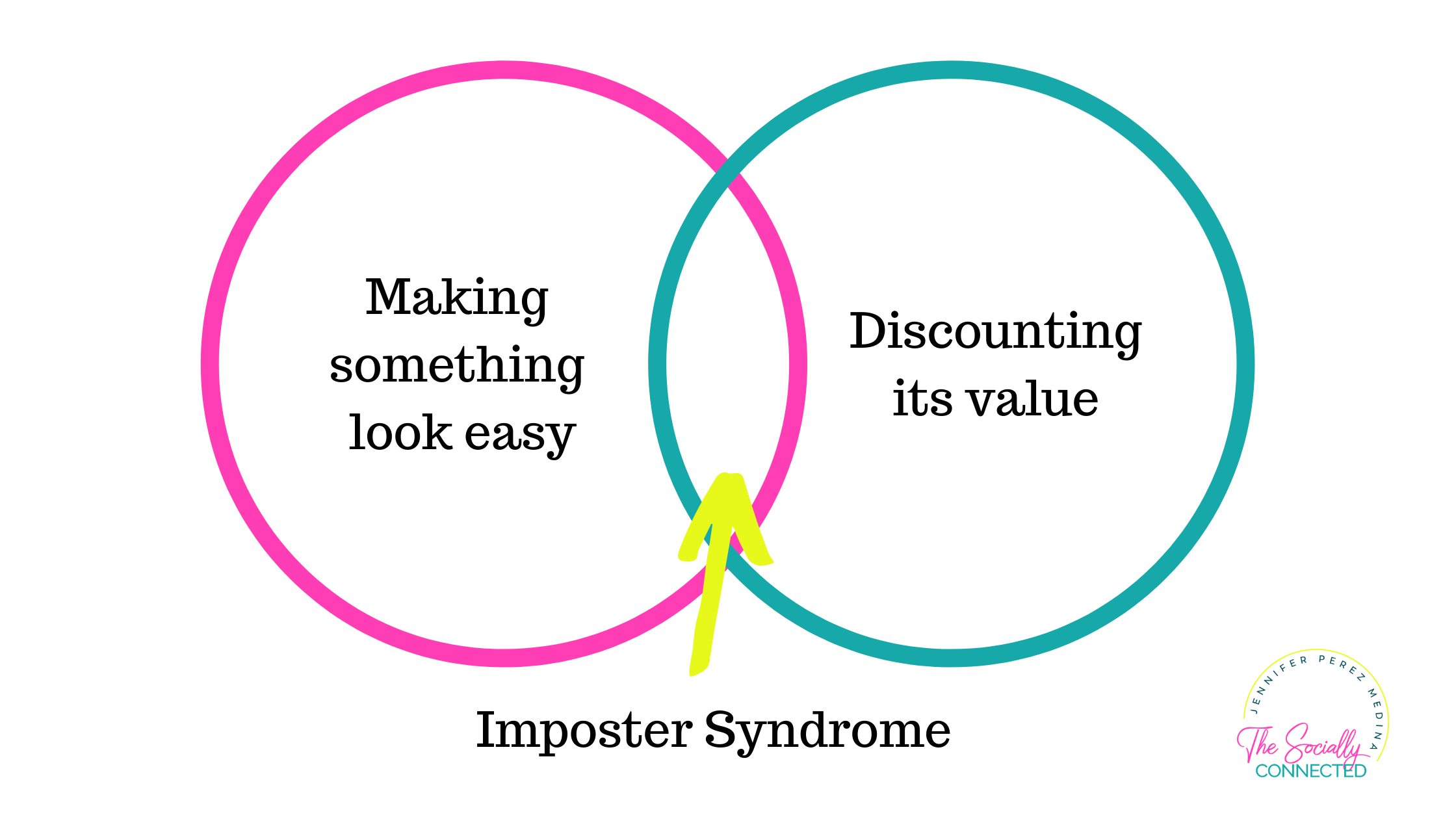
Feeling like you don’t belong? Like you don’t deserve to be successful? Do you feel like you’re a fraud? Or that you won’t be able to do what you’ve worked so hard to achieve once you get there? You could be experiencing imposter syndrome.
Well, you’re not alone. 70% of us experience these impostor feelings at some point in our lives. Although it was first recognized by behavioral psychologists among high achievers, these deep-seated feelings and thoughts of inadequacy and undeserving are experienced by everyone.
What Is Impostor Syndrome?
According to the American Psychology Association, impostor syndrome is a “very real and specific form of intellectual self-doubt” that is “generally accompanied by anxiety and, often, depression.”
Impostor syndrome has become so prevalent that psychologist, Audrey Ervin, developed a test to help her and her colleagues recognise it in their patients.
People who suffer from imposter phenomena chronically discredit their talents, efforts, and abilities. Instead, they believe their achievements are due to luck and feel like they don’t deserve to be where they are. They fear they will be found out to be a total fraud.
We all have doubts and that little negative voice telling us that we’re not good enough. But when we let those thoughts of inadequacy and unworthiness paralyze us, or prevent us from accepting that we are deserving of success, imposter syndrome has set in.

Overcome These 5 Types of Imposter Syndrome
Behavioral psychologist, Dr. Valerie Young, found that five particular personality traits are more susceptible to impostor phenomenon. She shares her findings in her book, The Secret Thoughts of Successful Women: Why Capable People Suffer from the Impostor Syndrome and How to Thrive in Spite of It.
The Perfectionist

Perfectionists are particularly susceptible to impostor syndrome by their very nature. They tend to set exceptionally high standards for themselves. When they fail to achieve them, they punish themselves. It is a self-fulfilling prophecy that perpetuates a harmful cycle of feeling incompetent.
Ironically, this group can also be controlling as they feel that nothing will be done right unless they do it themselves. As a consequence, perfectionists run the risk of burning out.
These individuals rarely find success satisfying. It could always have been better.
If you feel as though you never measure up and your best will never be good enough, stop. Go easy on yourself. Learn to accept your mistakes as part of the process. Apply all the energy you would put into punishing yourself to learn from them and grow.
The Superman/woman

Seeing themselves as a fraud, they push themselves to work harder, be better, just to measure up. Trying to maintain this extremely high energy and work overload can be hard on their mental health and relationships. These people tend to be workaholics, fixated on proving they’re worthy of success.
Truthfully, impostor workaholics are not addicted to working but the validation they receive from it.
If this is you, condition yourself to stop seeking external validation and learn to get it from within. Rather than seeing constructive criticism as a personal attack, learn to see it for what it is, guidance for improvement.
As you look inward for validation, you will gain the confidence you need to accept your success and celebrate your achievements.
The Natural Genius

According to Dr. Young, people of this type believe they need to be a natural ‘genius’ and judge their achievements and abilities based on ease and speed.
Like perfectionists, natural genius impostors measure themselves against impossibly high expectations, but they also expect to meet them on their first attempt. If something doesn’t come easily and quickly, internal alarms go off that can prevent them from doing it.
To overcome this, learn to see yourself as a work in progress and accept that you may have to work hard to get what you want. Everything can’t always come easy — even for you. For example, if you want to increase your video engagement, focus on honing your presentation skills rather than writing them off as something you’re just not good at.
The Soloist

Soloists believe asking for help reveals their phoniness. While independence can be a strength, if you are refusing help of any kind because it’s the only way you can prove you’re worthy and deserving, it is doing far more harm than good.
Learning to ask for help and accept help is the key to overcoming soloist impostor syndrome. If getting assistance will help you achieve your goals and success, there is no shame in asking.
The Expert

Experts believe they will never know enough. They live in constant fear of their inexperience or lack of knowledge being discovered.
Constantly seeking out courses and certifications can actually be a way to avoid stepping up to the plate. Rather than taking a chance to see if they can do something, they stay in their comfort zone of learning.
In order to overcome this, practice learning on an as-needed basis. Try asking others for help and allow them to teach you what you need to know for that task.
Overcome Impostor Syndrome By Helping Others
Changing your self-talk from negative to positive can be difficult. It will take constant effort and checking-in. Start by choosing one self-doubt and taking small actions to prove it wrong. Remember, imposter syndrome is real and you are not alone.
Talk to friends about what you’re feeling and accept help. We all feel as though we aren’t deserving, aren’t smart enough, or good enough, at some point in our lives. The challenge is to not let those feelings prevent us from achieving our goals.
Sharing what you know benefits others and is a powerful way to heal your own harmful feelings. Consider mentoring or volunteering. In doing so, you may find you are an expert after all.

View comments
+ Leave a comment